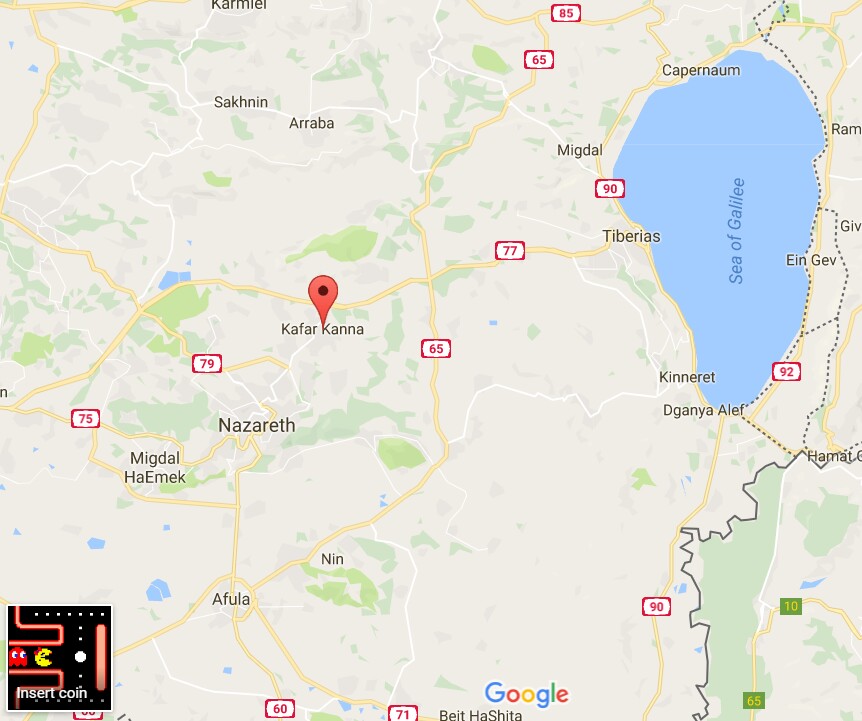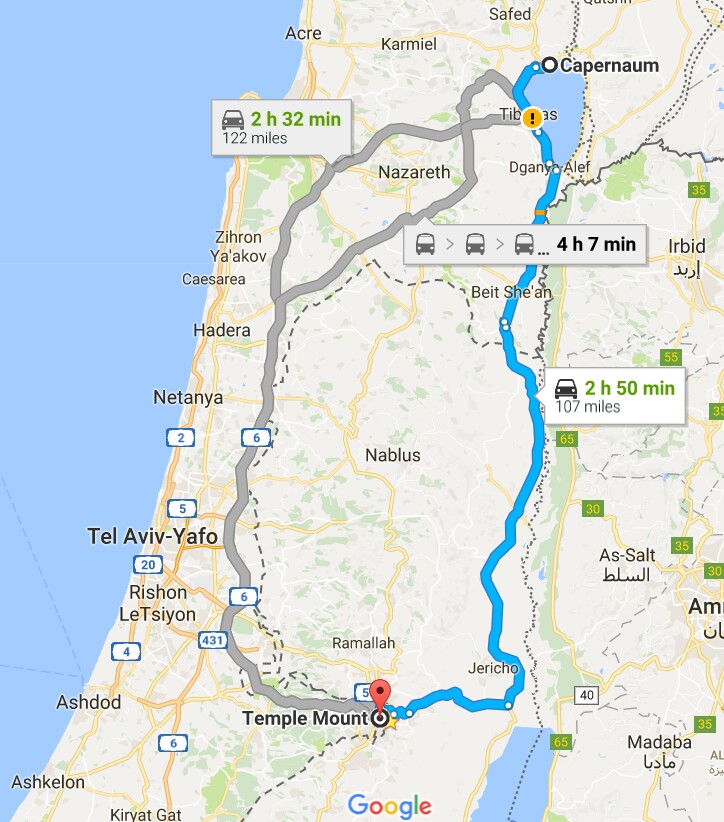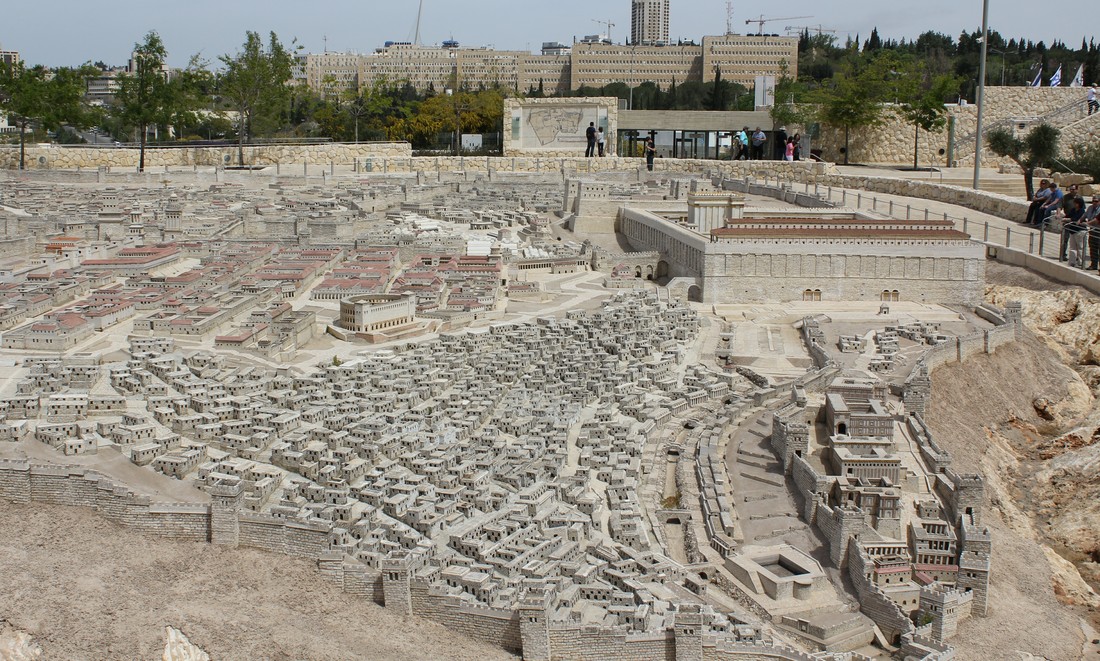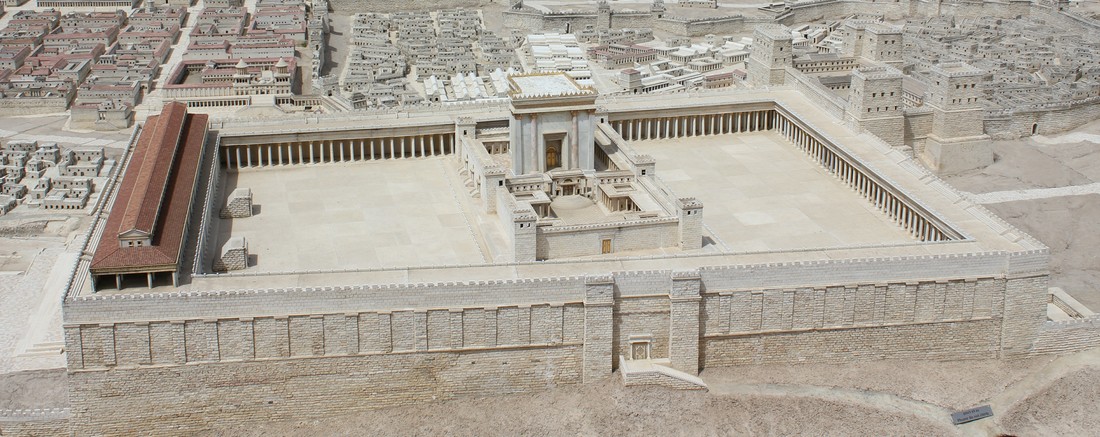| Teacher: Rusty Kennedy Series: Gospels |
Rusty's Notes | |
1 As the crowd was pressing in on Jesus to hear God’s word, He was standing by Lake Gennesaret. 2 He saw two boats at the edge of the lake; the fishermen had left them and were washing their nets. 3 He got into one of the boats, which belonged to Simon, and asked him to put out a little from the land. Then He sat down and was teaching the crowds from the boat.
4 When He had finished speaking, He said to Simon, “Put out into deep water and let down your nets for a catch.”
5 “Master,” Simon replied, “we’ve worked hard all night long and caught nothing! But at Your word, I’ll let down the nets.”
6 When they did this, they caught a great number of fish, and their nets began to tear. 7 So they signaled to their partners in the other boat to come and help them; they came and filled both boats so full that they began to sink.
8 When Simon Peter saw this, he fell at Jesus’ knees and said, “Go away from me, because I’m a sinful man, Lord!” 9 For he and all those with him were amazed at the catch of fish they took, 10 and so were James and John, Zebedee’s sons, who were Simon’s partners.
“Don’t be afraid,” Jesus told Simon. “From now on you will be catching people!” 11 Then they brought the boats to land, left everything, and followed Him.[1]
Matthew 4:21-22 – The Call of James & John
21 Going on from there, He saw two other brothers, James the son of Zebedee, and his brother John. They were in a boat with Zebedee their father, mending their nets, and He called them. 22 Immediately they left the boat and their father and followed Him. [2]
Luke 5:12-16 – Jesus heals a leper
12 While He was in one of the towns, a man was there who had a serious skin disease all over him (fully developed).
- When your issue becomes public knowledge and it causes people to avoid you.
He saw Jesus, fell facedown, and begged Him: “Lord, if You are willing, You can make me clean.”
- Last week - Luke 4:27 - 27 And in the prophet Elisha’s time, there were many in Israel who had serious skin diseases, yet not one of them was healed —only Naaman the Syrian (2 Kings 5). (Gentile – Syria army was an enemy of Israel)”
- Pharisees taught that only the Messiah could heal a Jew of leprosy.
- If the man was a Jew and this is what he had been taught then he must have believed that Jesus was the Messiah.
13 Reaching out His hand, He touched him, saying, “I am willing; be made clean,” and immediately the disease left him.
- No Pharisee would have touched this leper.
14 Then He ordered him to tell no one: “But go and show yourself to the priest, and offer what Moses prescribed for your cleansing as a testimony to them.”
- Leviticus 13 & 14 were instructions for the priests to deal with the ceremonial cleansing of lepers.
- Leviticus 14:1-32
1 The Lord spoke to Moses: 2 “This is the law concerning the person afflicted with a skin disease on the day of his cleansing. He is to be brought to the priest, 3 who will go outside the camp and examine him. If the skin disease has disappeared from the afflicted person, 4 the priest will order that two live clean birds, cedar wood, scarlet yarn, and hyssop be brought for the one who is to be cleansed. 5 Then the priest will order that one of the birds be slaughtered over fresh water in a clay pot. 6 He is to take the live bird together with the cedar wood, scarlet yarn, and hyssop, and dip them all into the blood of the bird that was slaughtered over the fresh water. 7 He will then sprinkle the blood seven times on the one who is to be cleansed from the skin disease. He is to pronounce him clean and release the live bird over the open countryside. 8 The one who is to be cleansed must wash his clothes, shave off all his hair, and bathe with water; he is clean. Afterward he may enter the camp, but he must remain outside his tent for seven days. -
9 He is to shave off all his hair again on the seventh day: his head, his beard, his eyebrows, and the rest of his hair. He is to wash his clothes and bathe himself with water; he is clean…
14 The priest is to take some of the blood from the restitution offering and put it on the lobe of the right ear of the one to be cleansed, on the thumb of his right hand, and on the big toe of his right foot.[3]
- Once this priest was forced to perform these duties… it caused many of them to gather and talk.
- Jesus was forcing them to acknowledge that He was the Messiah.
15 But the news about Him spread even more, and large crowds would come together to hear Him and to be healed of their sicknesses. 16 Yet He often withdrew to deserted places and prayed. [4]
Luke 5:17-26 – Jesus heals a paralytic that is lowered through the roof at Peter’s house in Capernaum.
17 On one of those days while He was teaching, Pharisees and teachers of the law were sitting there who had come from every village of Galilee and Judea, and also from Jerusalem.
- It was a big deal for Pharisees to come to Galilee.
And the Lord’s power to heal was in Him. 18 Just then some men came, carrying on a mat a man who was paralyzed. They tried to bring him in and set him down before Him. 19 Since they could not find a way to bring him in because of the crowd, they went up on the roof and lowered him on the mat through the roof tiles into the middle of the crowd before Jesus.
20 Seeing their faith He said, “Friend, your sins are forgiven you.”
- Jesus doesn’t forgive sin based upon a statement but by dying on a cross.
- According to all 66 books, Jesus words were not strong enough to forgive sin.
21 Then the scribes and the Pharisees began to think: “Who is this man who speaks blasphemies? Who can forgive sins but God alone?”
- Observation stage - They never question out loud.
22 But perceiving their thoughts, Jesus replied to them, “Why are you thinking this in your hearts?
- They didn’t believe He was the Messiah
23 Which is easier: to say, ‘Your sins are forgiven you,’ or to say, ‘Get up and walk’?
- How do you prove that you are the Messiah?
- To say a statement that could be questioned or to watch a physical manifestation of healing before their very eyes?
24 But so you may know that the Son of Man has authority on earth to forgive sins”—He told the paralyzed man, “I tell you: Get up, pick up your mat, and go home.”
- Jesus was forcing the Sanhedrin to decide who He was.
25 Immediately he got up before them, picked up what he had been lying on, and went home glorifying God. 26 Then everyone was astounded, and they were giving glory to God. And they were filled with awe and said, “We have seen incredible things today!” [5]
Matthew 9:9-13 – Matthew’s Call
9 As Jesus went on from there, He saw a man named Matthew sitting at the tax office, and He said to him, “Follow Me!” So he got up and followed Him.
10 While He was reclining at the table in the house, many tax collectors and sinners came as guests to eat with Jesus and His disciples.
- Matthew threw a party because of his belief/salvation in Jesus.
- He invited tax collectors and prostitutes.
11 When the Pharisees saw this, they asked His disciples, “Why does your Teacher eat with tax collectors and sinners?”
- 2nd Stage – Sanhedrin begins to ask questions.
12 But when He heard this, He said, “Those who are well don’t need a doctor, but the sick do. 13 Go and learn what this means: I desire mercy and not sacrifice. For I didn’t come to call the righteous, but sinners.” [6]
- righteous here = self-righteous
[1] The Holy Bible: Holman Christian standard version. (2009). (Lk 5:1–11). Nashville: Holman Bible Publishers.
[2] The Holy Bible: Holman Christian standard version. (2009). (Mt 4:21–22). Nashville: Holman Bible Publishers.
[3] The Holy Bible: Holman Christian standard version. (2009). (Le 14:1–32). Nashville: Holman Bible Publishers.
[4] The Holy Bible: Holman Christian standard version. (2009). (Lk 5:12–16). Nashville: Holman Bible Publishers.
[5] The Holy Bible: Holman Christian standard version. (2009). (Lk 5:17–26). Nashville: Holman Bible Publishers.
[6] The Holy Bible: Holman Christian standard version. (2009). (Mt 9:9–13). Nashville: Holman Bible Publishers.





 RSS Feed
RSS Feed